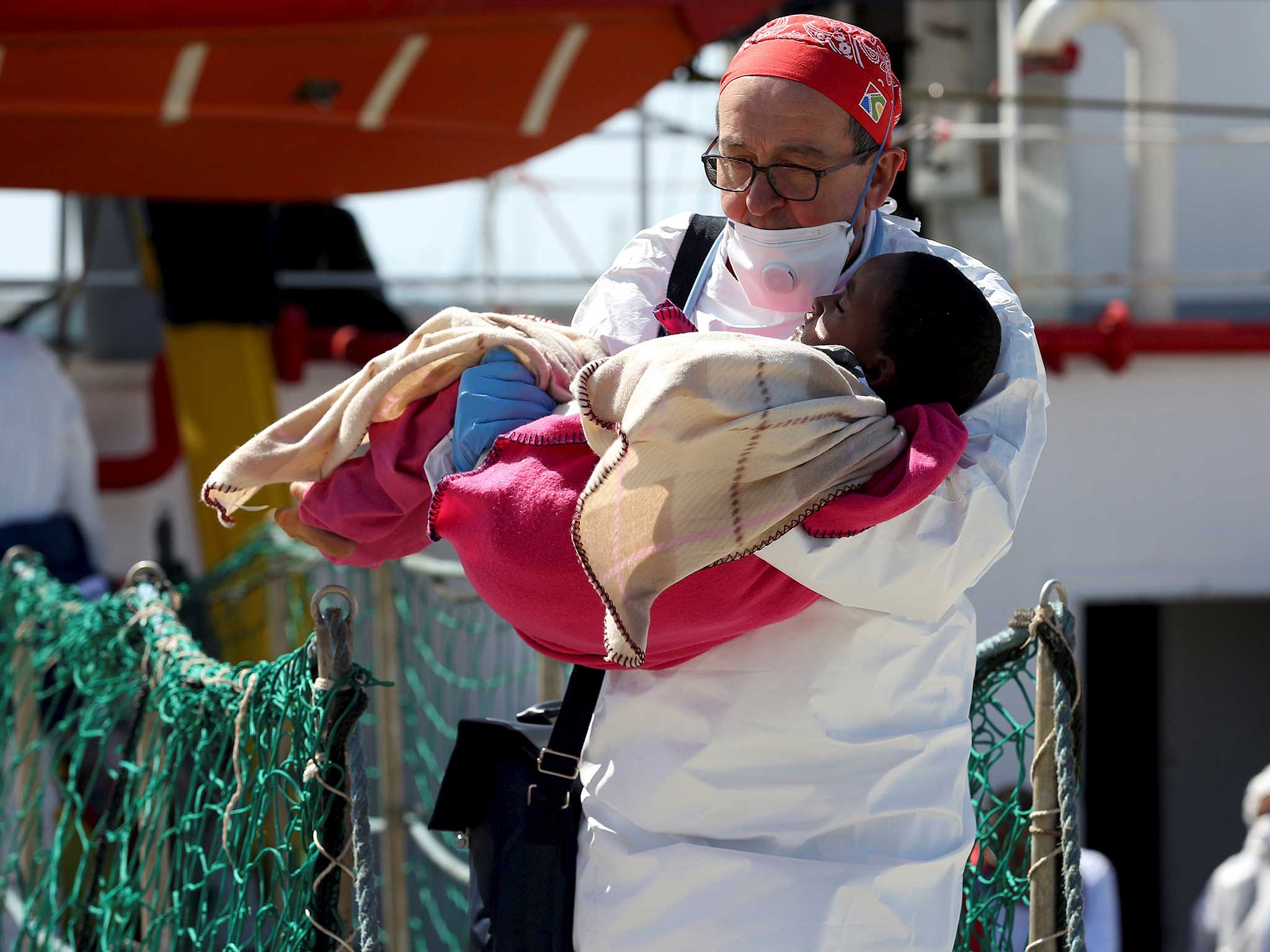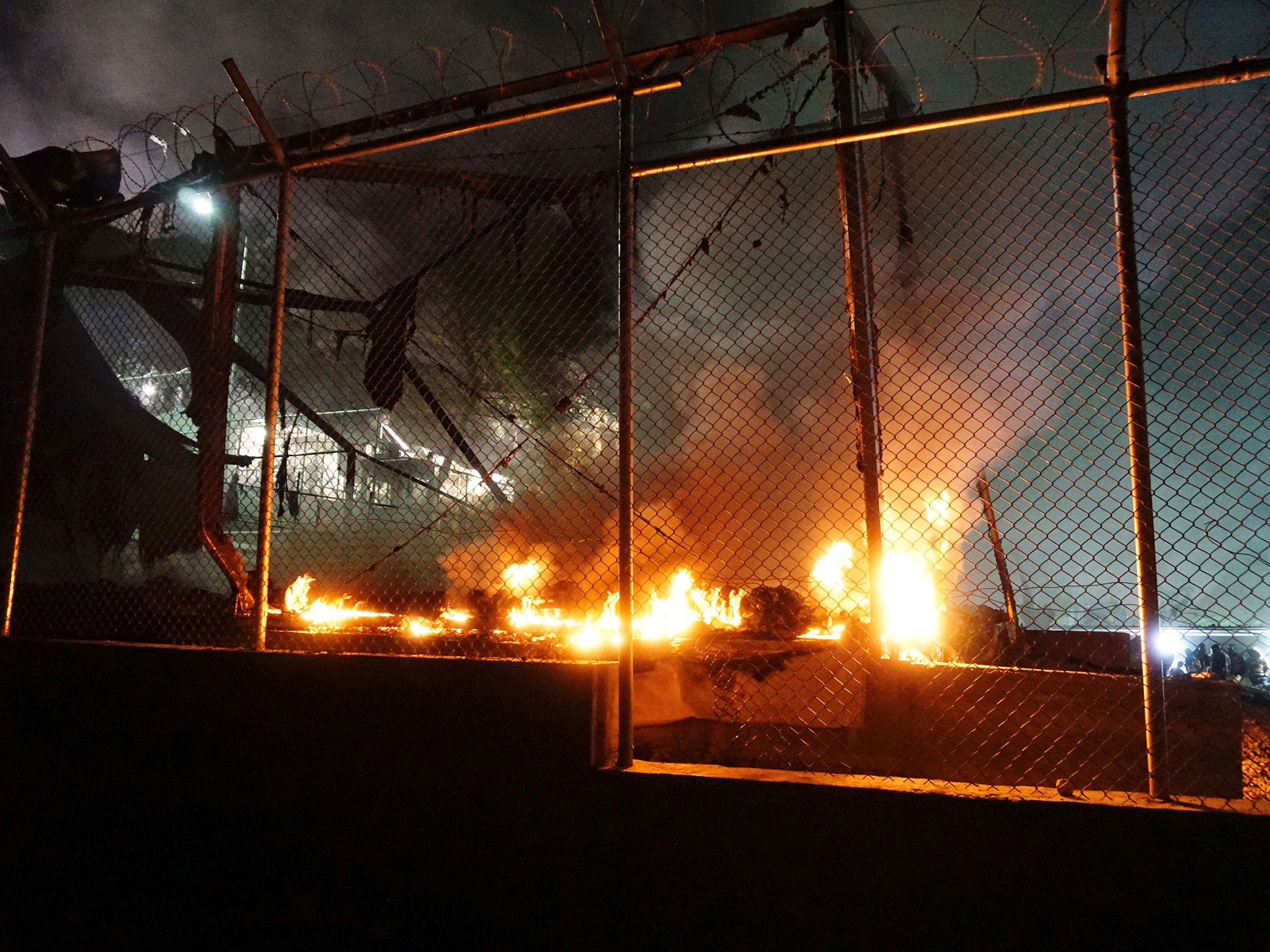Refugee crisis: Medical charity MSF rejects funding from UK and other EU nations over 'shameful' response
The charity accused the EU of 'instrumentalising' aid funding to reduce migration

Your support helps us to tell the story
From reproductive rights to climate change to Big Tech, The Independent is on the ground when the story is developing. Whether it's investigating the financials of Elon Musk's pro-Trump PAC or producing our latest documentary, 'The A Word', which shines a light on the American women fighting for reproductive rights, we know how important it is to parse out the facts from the messaging.
At such a critical moment in US history, we need reporters on the ground. Your donation allows us to keep sending journalists to speak to both sides of the story.
The Independent is trusted by Americans across the entire political spectrum. And unlike many other quality news outlets, we choose not to lock Americans out of our reporting and analysis with paywalls. We believe quality journalism should be available to everyone, paid for by those who can afford it.
Your support makes all the difference.One of the largest charities helping migrants across Europe has announced that it will no longer accept funds from the European Union and its member states in protest against the “shameful response” to the refugee crisis.
Doctors Without Borders (MSF) has long called for the creation of safe routes into the continent and joined countless other humanitarian organisations condemning the deal made with Turkey to detain and deport asylum seekers in Greece.
Jerome Oberreit, the charity’s International Secretary General, said: “For months MSF has spoken out about a shameful European response focused on deterrence rather than providing people with the assistance and protection they need.
“The EU-Turkey deal goes one step further and has placed the very concept of “refugee” and the protection it offers in danger.”
An estimated 8,000 people, including hundreds of unaccompanied children, are currently trapped on Greek islands under the terms of the EU-Turkey deal, which will see them deported if their asylum applications fail, without legal aid.
MSF said their plight shows the “human cost” of the controversial agreement made in March, which is seeing migrants held for several months in overcrowded camps, where fights, fires and violent protests have broken out.
The number of people crossing the Aegean Sea in smugglers’ boats has steeply declined since the new rules came into force but asylum seekers, mainly from Syria, Afghanistan and Iraq, continue to arrive.
Most of the almost 3,000 deaths recorded this year have been in a sucession of disasters on the Central Mediterranean route between Libya and Italy.
Proponents of the EU-Turkey deal, which the European Commission is considering replicating across more than 16 countries in Africa and the Middle East, argued that it aimed to reduce drownings at sea.

“Deterrence policies sold to the public as humanitarian solutions have only exacerbated the suffering of people in need,” Mr Oberreit said.
“There is nothing remotely humanitarian about these policies. It cannot become the norm and must be challenged.
“MSF will not receive funding from institutions and governments whose policies do so much harm. We are calling on European governments to shift priorities - rather than maximizing the number of people they can push back, they must maximize the number they welcome and protect.”
A spokesperson for MSF said its refusal of European state funding would take immediate effect and apply to its projects worldwide, condemning the unacceptable “instrumentalisation of humanitarian aid”.
The charity accused the EU of setting a dangerous precedent attempting to force people to stay in the countries they are desperate to flee, sparking border closures leading back to Isis territory near Azaz in Syria, where 100,000 civilians are trapped between the closed Turkish border and front lines.
“Europe’s attempt to outsource migration control is having a domino effect, with closed borders stretching all the way back to Syria,” Mr Oberreit said. “People increasingly have nowhere to turn.”
The organisation has treated an estimated 200,000 people in Europe and in boats on the Mediterranean Sea over the past 18 months and is working with refugees across the continent, as well as in the Middle East and Africa.
As well as running clinics at borders and in refugee camps, it operates three search and rescue ships in the Mediterranean that picked up more than 1,300 in just 36 hours last week.
It said its rejection of EU funding would not affect patients, and that its activities are already 92 per cent privately-funded.
MSF received €19 million from EU institutions in 2015 and another €37 million from member states, as well as working in partnership with the UK and nine other countries.
Subscribe to Independent Premium to bookmark this article
Want to bookmark your favourite articles and stories to read or reference later? Start your Independent Premium subscription today.
Join our commenting forum
Join thought-provoking conversations, follow other Independent readers and see their replies
Comments